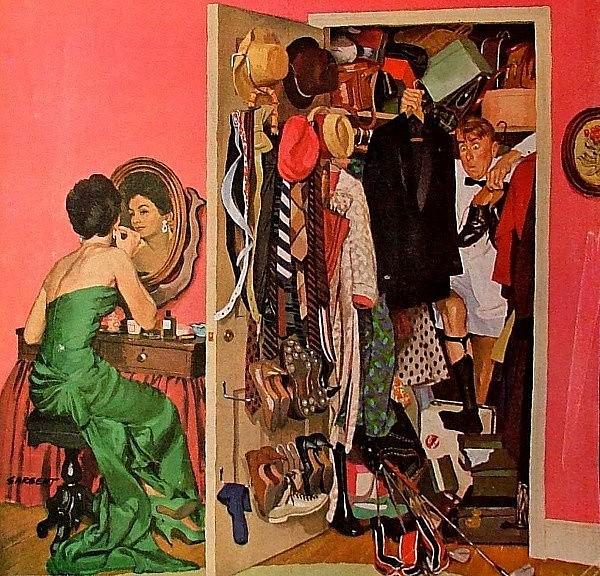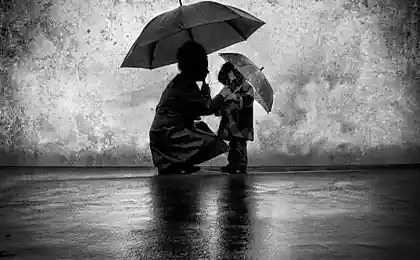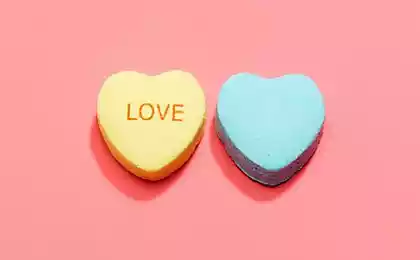365
How to get rid of attachment to things
This is terrible — to which we become attached to the trash.
We the people do not snap, as broken cups, footy pics, worn blouses and colored boxes. Sometimes it costs nothing to throw out from the life of a man who acted inappropriately — but how hard is to throw in the garbage chute case of a ring, which gave a classmate thirty years ago on the eighth of March!
And live — in houses, slaughtered a dear garbage in which to speak there's no one to...

Enough psychologists have studied in detail the phenomenon of attachment to things. In their view, the roots of this disease lie exclusively in the emotional sphere, and so poorly amenable to reasonable control.
We hold on to stuff because:
How to escape from a dozen emotional traps set by the psyche around unnecessary things? How to get yourself to throw away stuff? How to train yourself not to depend on things? How to minimize the space around them — with such feelings and sensations?
Ways only two. Both are long and hard practising skills.
Method one: focus on the present
Your depth in the past simply keeping you from being happy here and now.
You think that yesterday, of course, it was much better than today. And you steal from yourself a joyful present. Look at stuff with different eyes: it is because it prevents you from being happy, it makes you dream about the past and fearing the future. So get rid of junk — live in the present!
The second way: focus on quality rather than quantity
Agree: to eat in the heat one scoop of natural ice cream — so much better than to eat two boxes of cheap substitutes. To have in the wardrobe of one expensive designer dress is much more correct than to sink in dozens of Turkish t-shirts from the market.

Refrain from quantity in favor of quality — no one in the world disappointed in this strategy.
And finally remember: the thing — just a thing.
Author: Diana Petrosyan
Source: www.velvet.by/articles/uspeshnaya-zhizn/kodeks-minimalista/kodeks-minimalista-kak-izbavitsya-ot-privyazannosti-k-v
We the people do not snap, as broken cups, footy pics, worn blouses and colored boxes. Sometimes it costs nothing to throw out from the life of a man who acted inappropriately — but how hard is to throw in the garbage chute case of a ring, which gave a classmate thirty years ago on the eighth of March!
And live — in houses, slaughtered a dear garbage in which to speak there's no one to...

Enough psychologists have studied in detail the phenomenon of attachment to things. In their view, the roots of this disease lie exclusively in the emotional sphere, and so poorly amenable to reasonable control.
We hold on to stuff because:
- We road those positive emotions that are recorded by us on this item.
- We spent money on the thing, and thus rejected something else.
- We still believe that will ever use this thing suddenly comes case to apply, and apply, there will be nothing!
- The presence of some things in the present in some sense allows us to feel confidence in the future. Like how come the black day and I'm ready for it.
- Anyway well, when a person has something extra. So he's rich.
How to escape from a dozen emotional traps set by the psyche around unnecessary things? How to get yourself to throw away stuff? How to train yourself not to depend on things? How to minimize the space around them — with such feelings and sensations?
Ways only two. Both are long and hard practising skills.
Method one: focus on the present
Your depth in the past simply keeping you from being happy here and now.
You think that yesterday, of course, it was much better than today. And you steal from yourself a joyful present. Look at stuff with different eyes: it is because it prevents you from being happy, it makes you dream about the past and fearing the future. So get rid of junk — live in the present!
The second way: focus on quality rather than quantity
Agree: to eat in the heat one scoop of natural ice cream — so much better than to eat two boxes of cheap substitutes. To have in the wardrobe of one expensive designer dress is much more correct than to sink in dozens of Turkish t-shirts from the market.

Refrain from quantity in favor of quality — no one in the world disappointed in this strategy.
And finally remember: the thing — just a thing.
Author: Diana Petrosyan
Source: www.velvet.by/articles/uspeshnaya-zhizn/kodeks-minimalista/kodeks-minimalista-kak-izbavitsya-ot-privyazannosti-k-v
Find out when is most useful to eat fruit
The art of patience: what happens if you look at the picture for three hours
























